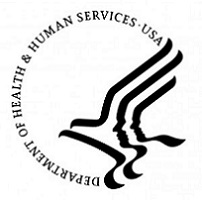 Project aims to identify several novel antibiotic candidates to address the threat of antibiotic resistance
Project aims to identify several novel antibiotic candidates to address the threat of antibiotic resistance
The U.S. Department of Health and Human Services (HHS) through the Advanced Research Projects Agency for Health (ARPA-H) announced funding for the Transforming Antibiotic R&D with Generative AI to stop Emerging Threats (TARGET) project, which will use AI to speed the discovery and development of new classes of antibiotics. This program is another action to support the United States’ longstanding commitment to combating antimicrobial resistance (AMR), from groundbreaking innovation to international collaboration. The U.S. is a global leader in the fight against AMR and has a demonstrated track record of progress in protecting people, animals, and the environment from the threat of AMR domestically and globally.
“Antibiotic resistance is a real and urgent threat affecting millions of people. We need to prevent infections and conserve the antibiotics we have. We also urgently need new drugs to treat these increasingly resistant infections. This project will use AI to speed this needed innovation and help ensure we have the medicines we need to keep people alive,” said Secretary Xavier Becerra.
Bacterial infections are a leading cause of death worldwide, and there is an urgent need to develop new antibiotics as the prevalence of antibiotic-resistant bacteria grows. Conventional efforts to identify and develop new antibiotics require extensive manual screening and testing of molecular compounds, with the majority failing to successfully show antibiotic activity. This laborious process impedes our ability to discover new antibiotics at the speed needed to address the urgent threat of antimicrobial resistance. TARGET aims to close this gap by using deep learning to identify biomolecules with antibiotic and pharmaceutical potential and using generative AI to broaden the pool of candidate molecules. Together, these approaches will speed the development of new classes of previously unknown antibiotics.
“The rise of antibiotic resistance threatens to turn once-treatable infections into life-threatening ones, but with AI, we can accelerate the discovery of new antibiotics to address this threat like never before,” said ARPA-H Director Dr. Renee Wegrzyn. “With TARGET, ARPA-H is bringing together experts across antibiotic discovery, AI, and clinical testing to ensure we can refill the global pipeline of antibiotics and stop people from becoming seriously ill due to treatable infections.”
TARGET will be led by Phare Bio, along with the Collins Lab at the Massachusetts Institute of Technology (MIT) and Harvard’s Wyss Institute, with a budget of up to $27 million. To accelerate the discovery and development of new antibiotics, the research team will focus on three main areas:
- Use generative AI to expand the number of antibiotic candidates. TARGET will expand the number of molecules currently being screened for antibiotic activity to include the Broad Institute’s Drug Repurposing Hub and the ZINC15 library, which collectively hold 107 million molecule candidates. The team will also broaden the number of digital molecules beyond these libraries by using generative AI to design potential antibiotic candidates from scratch.
- Use deep learning to develop new screens to test a candidate’s suitability as a pharmaceutical. TARGET will use deep learning to develop in silico (digital) screening tools to assess each molecule candidate’s effectiveness as an antibiotic and, ultimately, a pharmaceutical. For each candidate that demonstrates effectiveness, in vitro testing will be run that meets clinical and regulatory standards. The use of deep learning to narrow the field of molecule candidates will accelerate the time it typically takes to screen and should result in fewer dead-end compounds when tested in vitro and in vivo.
- Validate discoveries. Finally, TARGET will validate each new promising discovery for antibiotic activity and drug-like properties with the aim of identifying 15 promising leads for new antibiotics, which would help replenish the global pipeline.
This project is an example of the United States’ leadership in combating AMR through working with other governments, non-governmental organizations, the private sector, and other partners to tackle our most pressing challenges in preventing infections and addressing the emergence, spread, and impact of AMR. It comes one year since the ARPA-H announcement of the Defeating Antibiotic Resistance through Transformative Solutions (DARTS) project, which aims to develop a set of diagnostic and experimental platforms that can reveal insights into how antibiotic resistance starts.
TARGET is a project solicited through ARPA-H’s Open Broad Agency Announcement (Open BAA). ARPA-H continues to seek transformative ideas for health research or technology innovation through the Mission Office Innovation Solutions Openings. Continued support of each award is contingent on projects meeting aggressive milestones, typical of the ARPA-H process.
To learn more about projects as they are awarded, visit the project awardee page.
